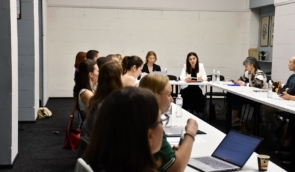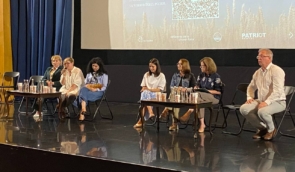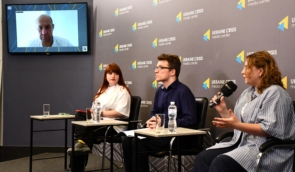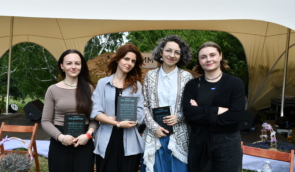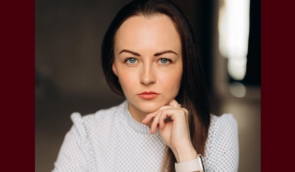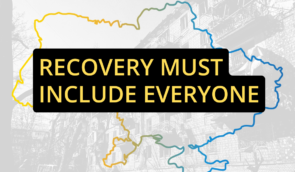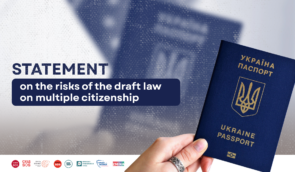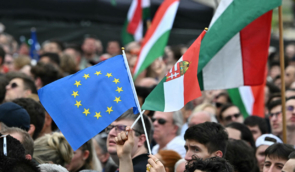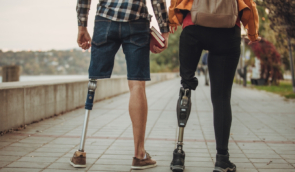Ukraine should develop mechanism for returning civilian hostages and political prisoners — representatives of authorities
According to the Mission of the President in Crimea, Russia holds 186 Crimean political prisoners, including 15 Crimean professional and citizen journalists. Some of them have serious illnesses and may die in captivity because Russia does not provide assistance to prisoners. All levers of pressure used by Ukraine to release civilian prisoners do not work as the Russian Federation actually blocks them and refuses to return the prisoners.
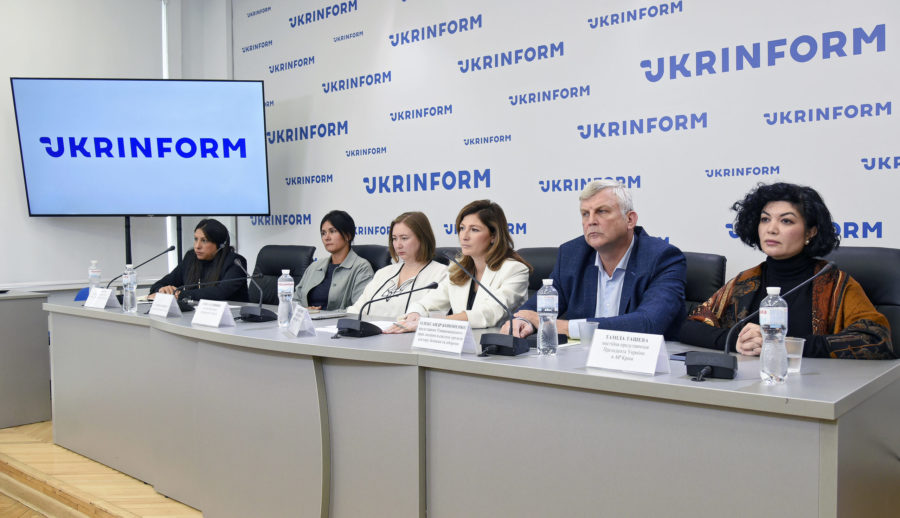
This was discussed during the press conference “How to save Vladyslav Yesypenko and other Crimean journalists imprisoned by Russia?” in Kyiv on October 5.
Vladyslav Yesypenko, who was detained by the Russians in Crimea in 2021 and accused of espionage, is among the imprisoned journalists. He was a freelance journalist in RL’s Crimea.Realities project. During the press conference, editor-in-chief of Radio Free Europe/Radio Liberty Nikola Karim said that the main priority of Radio Liberty is the struggle for the release of imprisoned journalists.
“We are doing everything possible to facilitate the immediate release of Vladyslav so that he can finally return to his wife Kateryna Yesypenko and their daughter Stefania. We appreciate the efforts by the Ukrainian government aimed at the safe return of Ukrainians held hostage by Russia. In 2019, President Zelensky’s negotiations led to the release of RFE/RL contributors Stanislav Aseyev and Oleh Halaziuk from captivity in eastern Ukraine. We hope that such efforts will allow Vladyslav and others to be freed and reunited with their families,” Karim said.
The journalist’s wife, Kateryna Yesypenko, hopes that the Ukrainian authorities will be able to find ways to put pressure on Russia to release her husband and other civilian hostages.
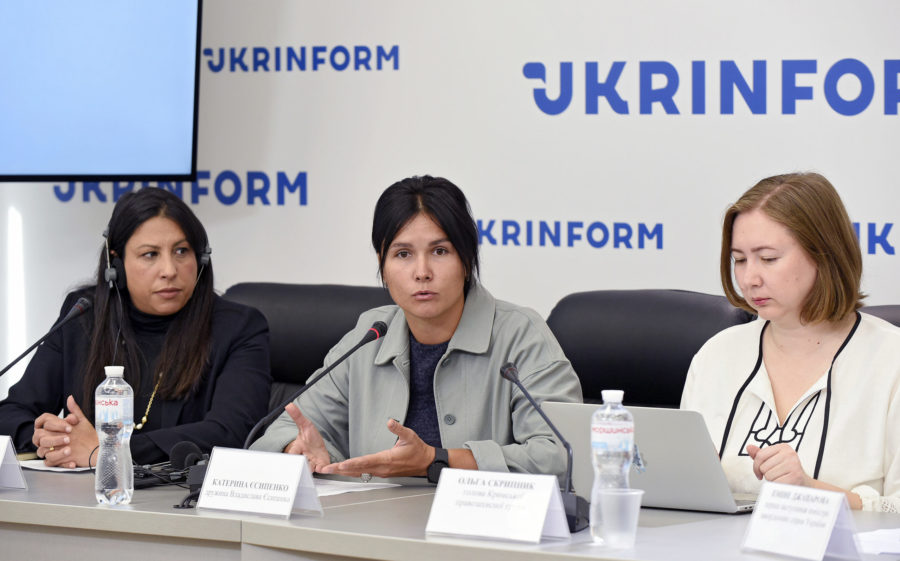 Kateryna Yesypenko (in the center)
Kateryna Yesypenko (in the center) “Relatives of prisoners have a pressing question: who in Ukraine is responsible for returning civilians home from captivity? Who should be contacted? In the ninth year of the war, we should already know this and have an algorithm for the return of civilian prisoners. I would like the state to pay more attention to this issue,” said the political prisoner’s wife.
In addition to Yesypenko, among the journalists illegally detained by the occupiers are Oleksiy Bessarabov, Seyran Saliyev, Marlen Asanov, Tymur Ibrahimov, Server Mustafayev, Osman Arifmemetov, Remzi Bekirov, Ruslan Suleymanov, Rustem Sheykhaliyev, Amet Suleymanov, Asan Akhtemov, Iryna Danylovych, Vilen Temeryanov, Ernes Ametov, as well as Nariman Dzhelyal – the deputy chairman of the Mejlis of the Crimean Tatar People, imprisoned, in particular, for trying to reveal the truth about the events in Crimea.
The Crimean Human Rights Group has been collecting evidence of crimes against Ukrainians, including journalists, since 2014. As CHRG head Olha Skrypnyk noted, our citizens are persecuted both by traitors who took Russia’s side (for example, Andriy Hiba, deputy head of the Investigative Department of the Russian FSB Directorate in Crimea, or prosecutor Hanna Turobova, “judge” Anton Tsykurenko), and Russian citizens transferred to Crimea, including judges. Russian judges in the territory of the Russian Federation also participate in criminal prosecutions when our citizens are transferred there (such as Igor Kostin, judge of the Southern District Military Court of the Russian Federation). All of them must be held accountable for the crimes committed.
Skrypnyk also named all representatives of the Russian Federation involved in the prosecution of journalists in Crimea. Among them: Andriy Hiba – deputy head of the Investigative Department of the Russian FSB Directorate in Crimea – prosecuted Vladyslav Yesypenko and other political prisoners; Hanna Turobova – prosecutor of the Russian-controlled Prosecutor’s Office of Crimea – prosecuted Iryna Danylovych and other political prisoners; Aleksandr Mordovin – judge of the Military Court of Appeal of the Russian Federation (as of February 2022) – prosecuted Osman Arifmemetov and other political prisoners; and other.
First Deputy Minister of Foreign Affairs of Ukraine Emine Dzhaparova noted that Russia is the aggressor state that does not make any contact regarding the release of civilian hostages
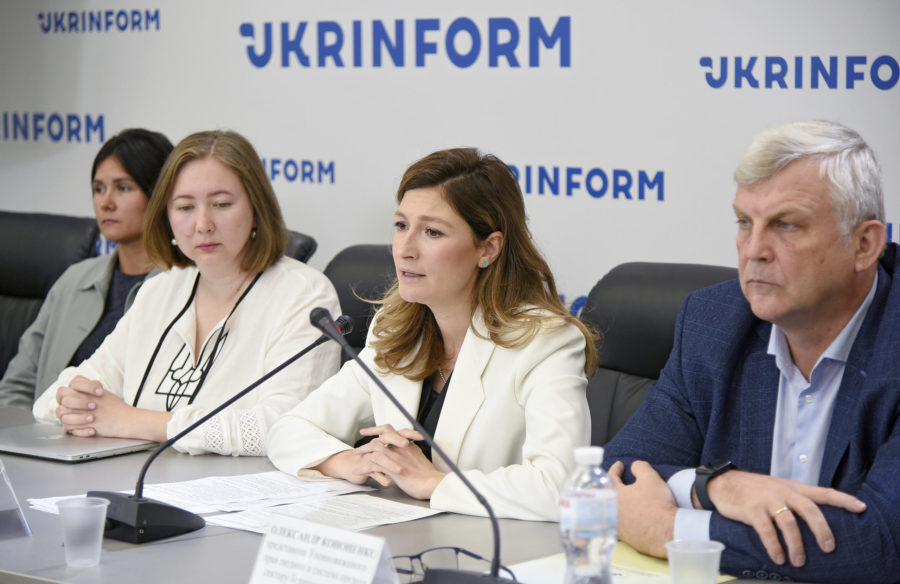
“We have to be patient because we cannot always have an effective result, because there is the Russian Federation which basically aims to destroy us as a state. Therefore, some issues lie in the plane of a broader settling and ending this war,” the government official said.
According to Oleksandr Kononenko, a representative of the Ukrainian Parliament Commissioner for Human Rights in the system of security and defense sector bodies, Russia blocks any Ukraine’s attempts to return civilians. Currently, according to the Commissioner’s Office, 25,000 Ukrainian civilians are in Russian captivity. According to the official, Russia does not want to admit that Ukraine also holds hostage Russian civilians who could be exchanged for Ukrainians.
The Russian Federation also ignores the efforts made by other states to help free Ukrainians.
Permanent Representative of the President in Crimea Tamila Tasheva emphasized that Ukraine needs a mechanism for releasing Ukrainian hostages from the Russian Federation. As she noted, Russia seeks to exchange Russian military personnel for Ukrainian civilian prisoners which is not provided for by international law.
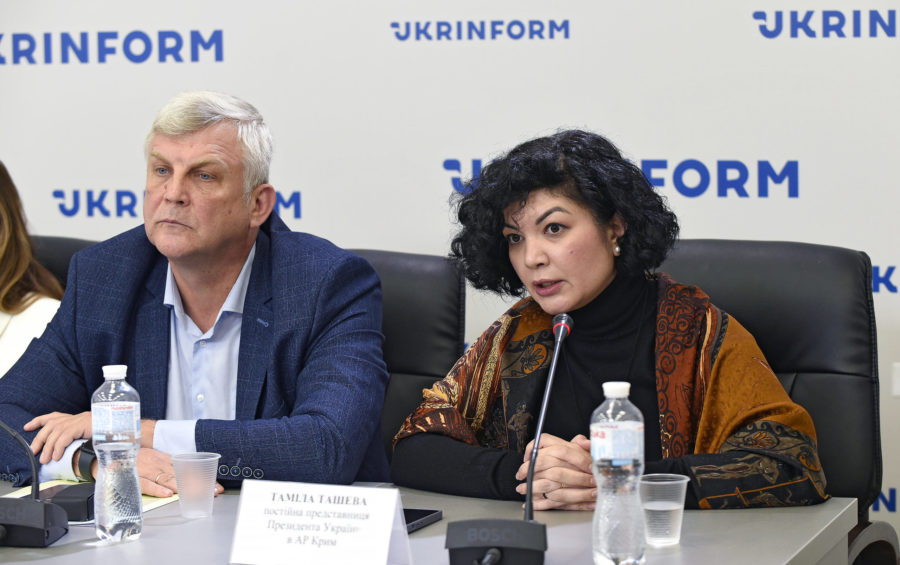 Oleksandr Kononenko and Tamila Tasheva
Oleksandr Kononenko and Tamila Tasheva “We need to think of an effective mechanism for the release of civilian hostages. It is difficult. The lists of civilian hostages, including the list of political prisoners, which includes the entire group of journalists, are constantly updated in the Office of the President, communicated with the coordination center. But here, unfortunately, the will of the Ukrainian state alone is not enough. The key point here is the Russian Federation,” Tasheva said.
Watch the video from the event at the link.
Photo credit: Ukrinform
If you have found a spelling error, please, notify us by selecting that text and pressing Ctrl+Enter.

